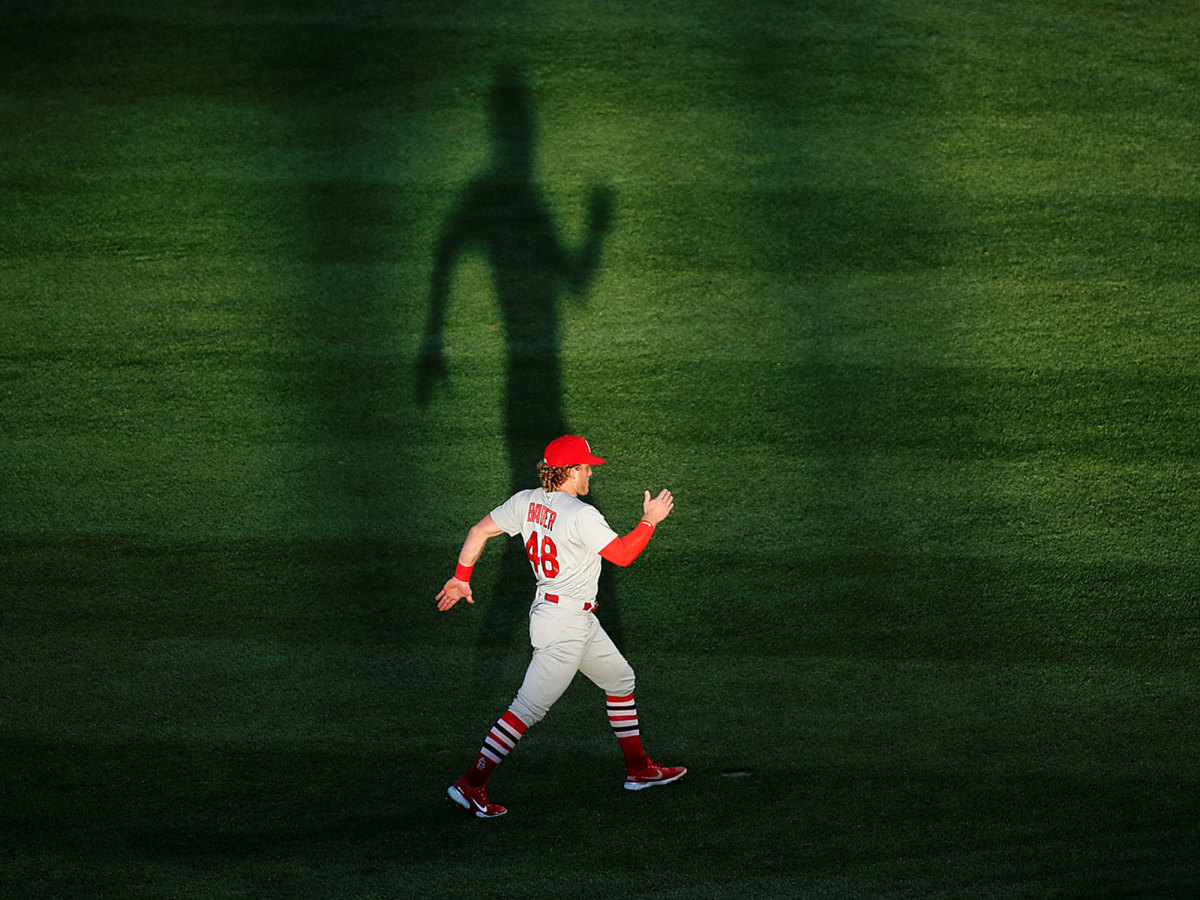What Should We Expect From This Year's MLB Trade Deadline?
A season unlike any other delivers a trade deadline unlike any other. Most of that stems from the expanded 16-team playoff, with almost every club in baseball a short winning streak from vaulting into a postseason spot. So how will that shake up the trade deadline and our beloved buyers and sellers?
Spoiler: Don't expect much drama on the transaction wire over the next week. Maybe we'll all be surprised. Maybe we won't. SI's MLB experts weigh in on what to expect at this year's deadline.
Tom Verducci
I’m not expecting too much at the deadline this year, because this season is so unusual and the deadline has become a hyped event on the calendar. This year is just so different. Teams can’t trade prospects who are not in their 60-man player pool. Many otherwise good minor league trade chips have not played competitive baseball all year, so how do you judge their development? A .500 record pretty much puts a team into the postseason, so that leaves only a handful who won’t have a realistic shot at the postseason by next week. For players not under contract for next year, you’re trading for only one month of service, not two.
I do think you’ll see some pitching traded because injuries to pitchers have really thinned the ranks of truly major league-ready pitchers who you can trust down the stretch.
Stephanie Apstein
I think most movement will be around the margins. With the expanded playoffs, at least two-thirds of the league believe they are buyers, and that seems likely to drive prices for high-end talent to prohibitive levels, especially considering that winning the 2020 World Series isn't going to feel quite like the real thing. So it'll be hard for teams to part with key players of their future in service of a present that is this bizarre and tenuous.
There's also the issue that most scouting information on guys below the major league level is months old, which I would think would make teams more hesitant to deal. Of course, that will be just as true this offseason, so this weirdness could persist for a while.

Emma Baccellieri
I think I'm most curious here about how teams value prospects in a season where they can't see any of them. There are no games. Some minor league players are still working out at home. Some have spots at their clubs' alternate sites, but there's nothing that resembles true game action there, and even if there was, no opposing scouts are allowed inside to evaluate it. (MLB has set up a data- and video-sharing system that clubs can opt into to check out prospects at alternate sites for the purpose of arranging trades—but, while useful, that's not a substitute for all the information you'd typically have from players in a game setting.) Add all this to the fact that the expanded postseason means less pressure on chasing a playoff spot, and it's hard to imagine many, if any, serious prospects moving at the deadline.
Connor Grossman
In a season of any length, the tradeoff of an expanded postseason is that the majority of teams will be in contention for a longer period, meaning fewer teams will be willing to trade talented players. Hard to make a trade in a league with 28 buyers, huh? So especially in this 60-game season, with financial flexibility (read: lower payrolls) a priority in these uncertain times, expect more teams than ever to stay put at the deadline. DSorry to disappoint.
Matt Martell
The best prediction I have for these circumstances is this: We could see more mutually beneficial trades of lesser-known players under club control. Think something like what the Yankees and Cardinals did in 2018, when St. Louis got right-handed reliever Giovanny Gallegos for then-unknown first baseman Luke Voit. Gallegos has sured up the back of the Cardinals bullpen (185 ERA+ last year) and Voit has become a mainstay in the middle of the Yankees lineup.
I don't expect any team to trade a well-known name. One caveat to that prediction is Trade Master Flex Jerry Dipoto. If a more established (and expensive) player does get traded, expect the Mariners to deal third baseman Kyle Seager, who's rocking a 149 OPS+ and is signed through the 2021 season with a club option for 2022.
Michael Shapiro
Feels like there will be minimal wheeling and dealing ahead of the trade deadline. A condensed season has kept far more teams in the playoff mix than in a normal year, and an expanded playoff field doesn’t exactly help facilitate player movement. Expect a few relievers to move, maybe a solid bat or two. But it’s hard to see any true blockbuster before September.
